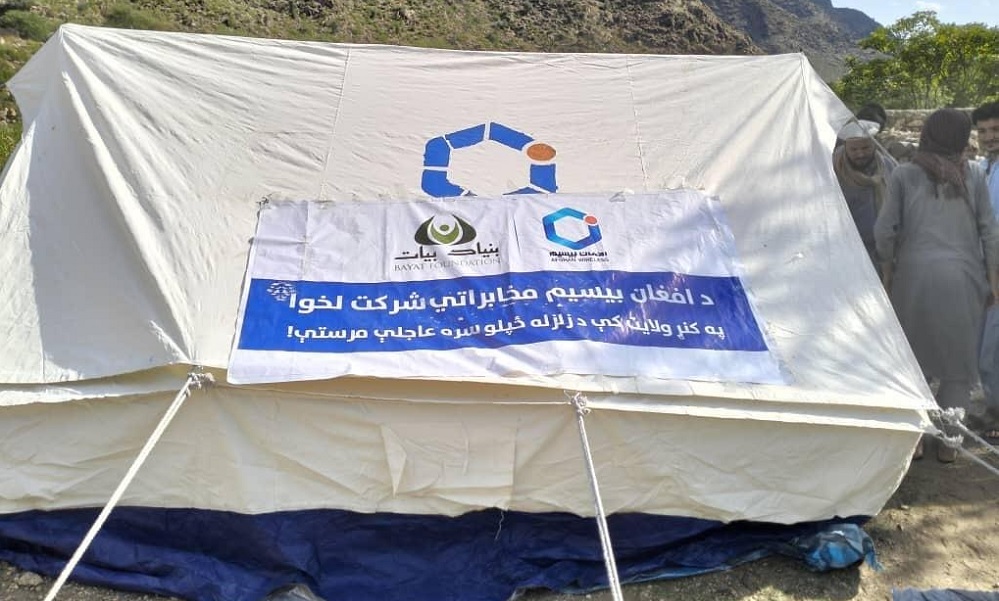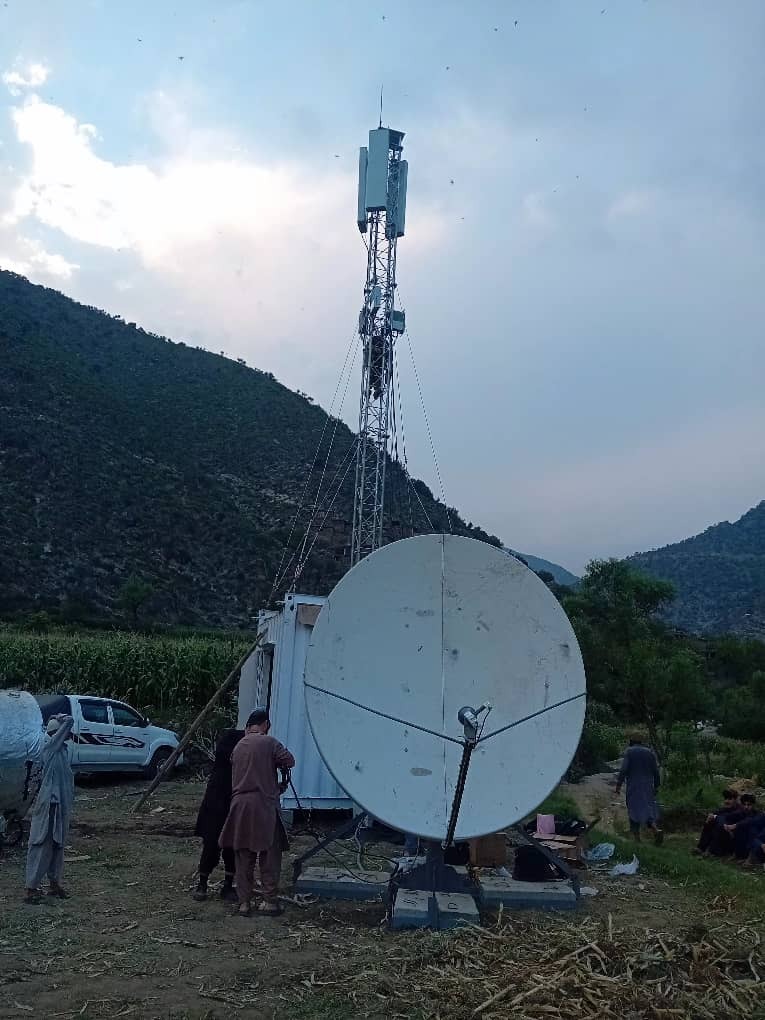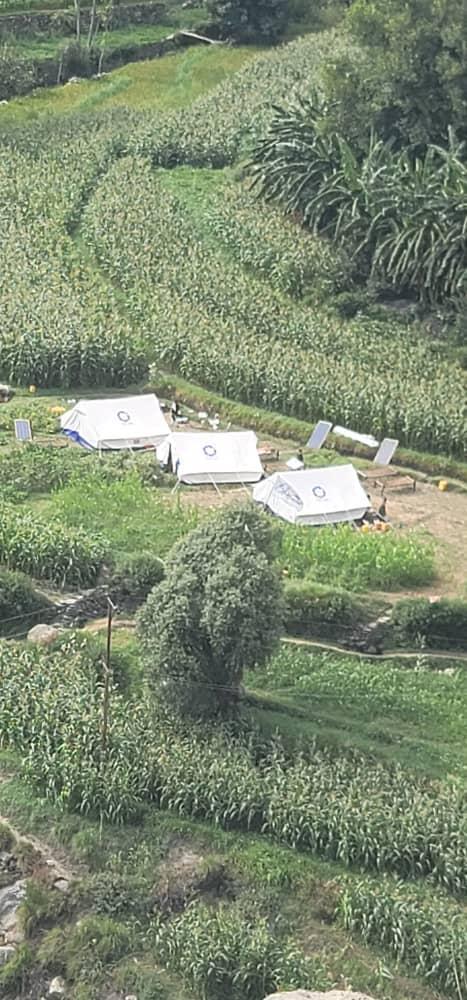In the aftermath of powerful earthquakes that struck eastern Afghanistan last week, the Bayat Foundation and Afghan Wireless Communication Company (AWCC) have mobilized substantial humanitarian support for quake-affected communities in Kunar province.

Thousands of tents have been installed in temporary camps for displaced families. These camps are equipped with essential services, including access to food, drinking water, and medical assistance. Local authorities say efforts are ongoing to expand relief operations as more affected families are identified.
As part of its emergency response, the Bayat Foundation has delivered mobile health teams, medical supplies, food items, and emergency shelter materials to hard-hit areas.
AWCC is also playing a critical role by maintaining telecom infrastructure in the region. A new communication site is being activated in Noor Gul district to support connectivity in earthquake-affected zones. Additionally, the company is issuing free SIM cards to international rescue teams deployed in the region, helping facilitate coordination and emergency response efforts.

The recent earthquakes and subsequent aftershocks have caused significant human loss, with 2,205 people killed and 3,640 others injured, according to official figures. In addition to the human toll, there has been widespread destruction of homes, infrastructure, and livelihoods.
Many affected families remain without permanent shelter, facing difficult conditions as colder weather approaches. Life in temporary camps, while a vital short-term solution, is proving increasingly challenging as basic needs grow and winter nears.
International aid agencies have highlighted the urgent need for long-term recovery support, including the construction of permanent housing, restoration of roads, and access to renewable energy sources.
The joint response by the Bayat Foundation, AWCC, and local authorities is helping to address immediate humanitarian needs — but ongoing support will be essential to ensure a full and sustainable recovery for the earthquake survivors.

